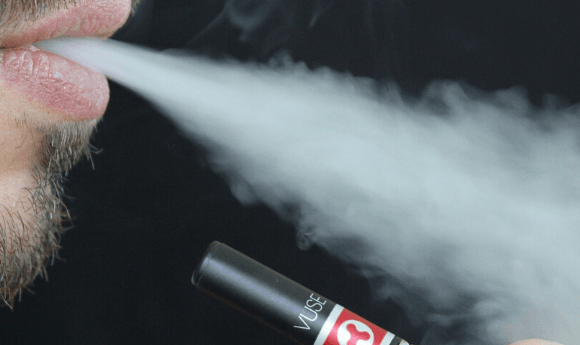Clearing the clouds: could a common vape additive be damaging lungs?

New research implicates vitamin E acetate in lung injuries associated with vaping.
Originally marketed as a safer alternative to conventional cigarettes, e-cigarettes and vaping products have come under fire in recent years as growing research suggests that the health risks associated with long-term use of such products are not sufficiently understood.
There is mounting concern regarding the increased use of vape products amongst young people, with the American president recently banning the manufacture, distribution and sale of flavored vapes across the USA in a bid to discourage youth vaping.
Now, a collaborative study, led by the Centers for Disease Control and Prevention (GA, USA), has demonstrated a potential link between vitamin E acetate – an additive common in tetrahydrocannabinol (THC) vapes – and e-cigarette or vaping product use-associated lung injury (EVALI).
Bronchoalveolar lavage (BAL) fluid from 51 EVALI patients was compared with the BAL fluid of 99 healthy nonsmokers who were engaged in an ongoing smoking evaluation study. Vitamin E acetate was discovered in the BAL fluid of 48 of the 51 EVALI patients but was absent in the fluid of all 99 healthy participants.
While vitamin E acetate was not found in the BAL fluid of 3 EVALI patients, it is important to note that there is no confirmatory test for EVALI, it is diagnosed on an exclusionary basis. Therefore, there is a high chance of misdiagnosis and the patient’s symptoms being caused by another condition.
- Breathing in mRNA to cure disease
- A blood test for lung cancer treatment
- Alveolar stem cells offer hope for lung disorders
The use of THC-containing products was reported in 77% of EVALI patients. Vitamin E acetate has a similar viscosity to THC, and its use as a cutting agent has been reported in the illegal market. The vitamin was not detected in seized THC-containing vape products prior to 2019, meaning the addition of the substance to THC vapes coincides with the 2019 EVALI outbreak.
Coconut oil and limonene were each found in 1 EVALI patient; however, the toxicologic effect of both are currently unknown and more research is required.
This research builds on previous work reported by study author Peter Shields (Ohio State University Comprehensive Cancer Center; OH, USA) and colleagues, which demonstrated that short-term vaping causes inflammation in the lungs.
The researchers have hypothesized several mechanisms by which the additive could damage the lungs. However, there is currently a gap in the knowledge regarding exposure to heated vitamin E acetate and more research is needed
“These findings support the conclusion that vitamin E acetate is a potential causative agent of EVALI, and that is an important discovery as decisions are made about how to best regulate the rapidly evolving e-cigarette industry,” concluded Shields.




